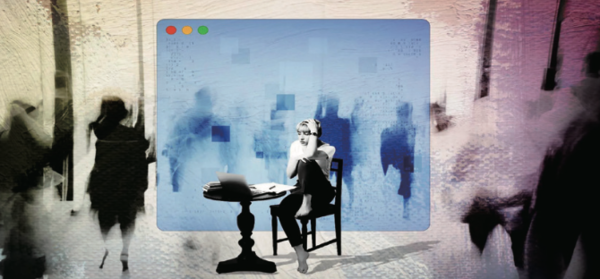
Self-diagnosis is the process of identifying medical conditions in oneself, often by searching for symptoms online. This phenomenon of self-diagnosing, especially neurodivergent conditions such as attention-deficit / hyperactivity disorder (ADHD) and social anxiety, has been amplified through social media. Platforms such as Instagram and TikTok provide a space for self-expression and information dissemination, fostering a new trend of authentic vulnerability as individuals start sharing personal experiences online. Instead of promoting constant happiness, social media has shifted towards the relatability of suffering. This trend may include anecdotes about symptoms, personal diagnoses, and coping strategies. Notably, the videos of influencers sharing their mental health experiences allowed their followers to relate to their symptoms, and therefore self-diagnose with the same mental illness.
The act of self-diagnosis has been widely discussed for its impact on society’s recognition of mental illnesses. Health professionals have recognized the dangers of this practice of self-diagnosing due to the prevalence of misinformation, leading to potential misdiagnosis and inappropriate treatments. However, this trend has also ushered in a new wave of awareness among social media users and now holds significant potential to assist individuals on their mental health journey. Social media has provided a platform for an open and destigmatized conversation about mental illnesses, helping individuals become more informed and engaged regarding a once-taboo subject. This platform allows information and coping mechanisms to come directly from those who experience mental illness, helping to reduce shame and secrecy and normalize its symptoms. Furthermore, influencers sharing their personal experiences offer insight into the reason behind their actions. Finding a relatable narrative for their behavior can be a glimpse of hope in resolving the frustration and isolation that often stems from the unknown. As these trends continue to shape the landscape of the mental health discourse, a balanced approach to self-diagnosis is essential.
In many cases, individuals resort to self-diagnosis due to limited access to resources or their negative perception of therapy, deterring them from seeking professional help. This tendency can be partly attributed to the shortcomings of the current healthcare system and the cultural stigma surrounding mental health. Social media has played a crucial role in dismantling these stigmas around mental health. Nonetheless, it is essential to acknowledge that information on social media often lacks credibility. Self-diagnoses should be perceived as an initial step for further discussion with a health professional. For those with limited access to a healthcare professional, government agencies and nonprofit organizations can help with finding support or help with more reliable research. Trustworthy online resources such as the National Institute of Mental Health and the National Center for Mental Health of Korea offer reliable starting points for information and support.
